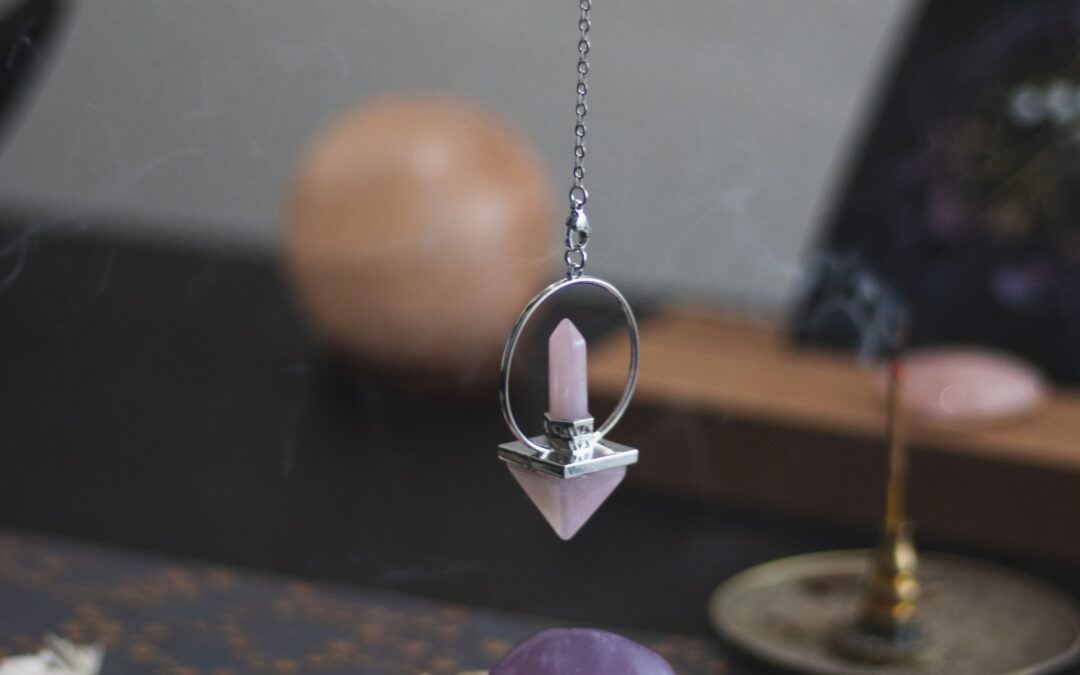
by Michael | Dec 12, 2022 | Blog
Looking back on one of my posts from about a year ago (“Expectations”), I see how accurately I foresaw that this year would go. I advised ignoring fear and pessimism, and encouraged booking those weddings, vow renewals, namings, handfastings, and the like.
In the event, we had no more lockdowns or sudden changes of law, and all has gone pretty smoothly.
Before I claim to be an infallible soothsayer, I have to admit that I didn’t hit the mark with every prediction the previous year! So feel free to take my words with a pinch of the proverbial!
However, encouraged by my recent success, I do suggest the following.
Definitely, go for it. If you want to mark an occasion in a special way. Don’t hold back. Although we don’t know – of course! – what lies round the next corner, there’s no point hesitating from fear or apprehension. As I write, there’s no major threat hanging over us. So, why defer?
If you have the excuse to celebrate, then do so! We haven’t had a lot of joy in the last few years, so let’s make up for it!
Another bonus lies on the horizon. Mind you, this is speculation at present …
You may know that Parliament is currently debating amendments to the marriage laws. What these might mean is that independent celebrants (yes, such as me!) might be able to conduct legally-binding marriages. A decision is unlikely to be reached before July, and then the celebrant will have to be trained and vetted, so it may not happen in 2023. And it’s no forgone conclusion. However, it’s something that can be looked forward to (I just hope it gets passed).
If it happens, it will make the whole registering process so much simpler. You’ll be able to ask me (for example!) to conduct the ceremony of your dreams and also do the legal bits at one and the same time. That may also work out cheaper, but it will certainly be more convenient. Well, let’s see how that pans out.
I predict that it will happen – let’s see if I’m right again!
Photo by Susanna Marsiglia on Unsplash
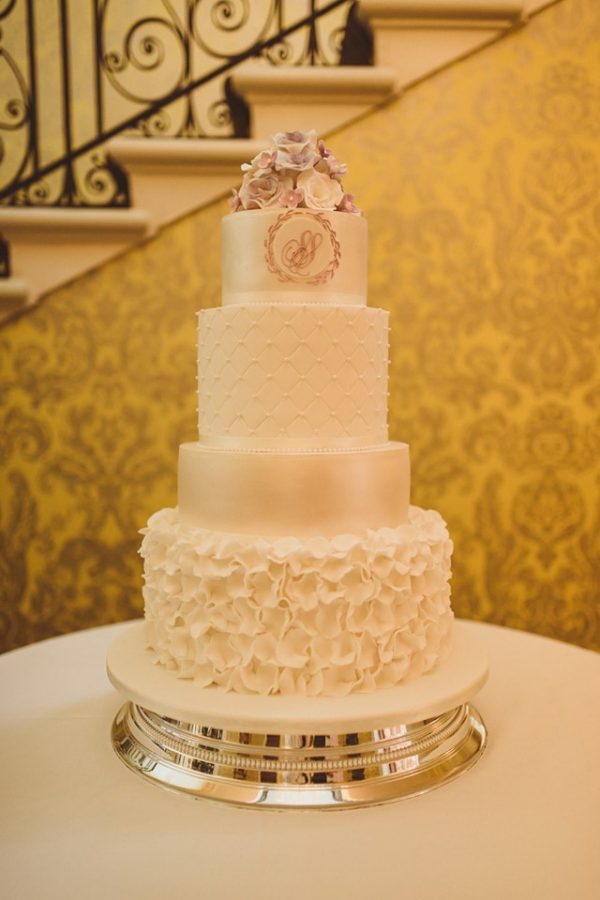
by Michael | Dec 9, 2020 | Blog
Legal matters concerning marriage may not be everyone’s cup of tea. Indeed, the title possibly did not grab your attention. But you can’t marry without certain requirements being satisfied, so please read on.
Exciting news
There is every possibility that, in the course of 2021 or 2022, the law will change. If so, independent civil celebrants will be permitted to train and conduct legal ceremonies. Then you can have the ceremony of your choice and it will be legally binding.
Obviously, churches and register offices will not stop acting as marriage venue possibilities.
Incidentally, as far as legal registration is concerned, this blog only covers births, deaths and weddings. (You don’t need any paperwork to celebrate a Vow Renewal or a handfasting.)
The current situation
Births are usually registered at a hospital. For deaths, the doctor (either at home or, again, at the hospital) normally provides the death certificate, which you take to the local Register Office.
Until such time as the legislation changes, here is what you have to do at the moment for a legal wedding. It’s a little more complex.
Religious weddings
If the wedding is conducted in an Anglican church or synagogue, or according to the Quaker service, then there is normally a member of the institution present who is a registrar. They will ensure the legalities are carried out.
If you’re having a marriage anywhere else, things are different and a little more complicated!
Register Office
You need to register your intention to marry at least 28 days in advance. Then you go to the Register Office (by appointment) with two witnesses, and can get legally married. The ceremony will be totally secular and fairly standardised (so next-to-nothing to differentiate one service from the next).
The Registrars used to be able to come to you. Legislation is going to change for this too, but for now, provided the wedding venue has four solid walls and a roof (basically), the registrars could conduct the wedding for you at your venue. (This would cost several hundred pounds more than attending the Register Office.)
However, due to the Coronavirus situation, registrars are not coming out to venues at all for the foreseeable future.
Another alternative
You can have a civil celebrant-led ceremony. This lets you choose a religious (or partially-religious) or a secular ceremony. The big thing – setting this option out from the other two – is that you can have the ceremony of your dreams. Why? Because the celebrant will work with you in advance to respect and enable your vision. It’s all about personalising, rather than following a standard rubric. That means your ceremony will be unique, and can reflect your personalities and beliefs.
The downside is that the ceremony has no legal validity. So you still have to attend the Registrar-led ceremony beforehand too.
Obviously, another downside – with all these – is social distancing, and the need to severely limit your guest list.
Either way, once you’re legally married, you can have your dream ceremony, conducted by the celebrant, afterwards. To all intents and purposes, that will be your real wedding!
Hopefully, not so painful, was it? But if you have any questions, please feel free to ask me.
Photo: Matt Penberthy
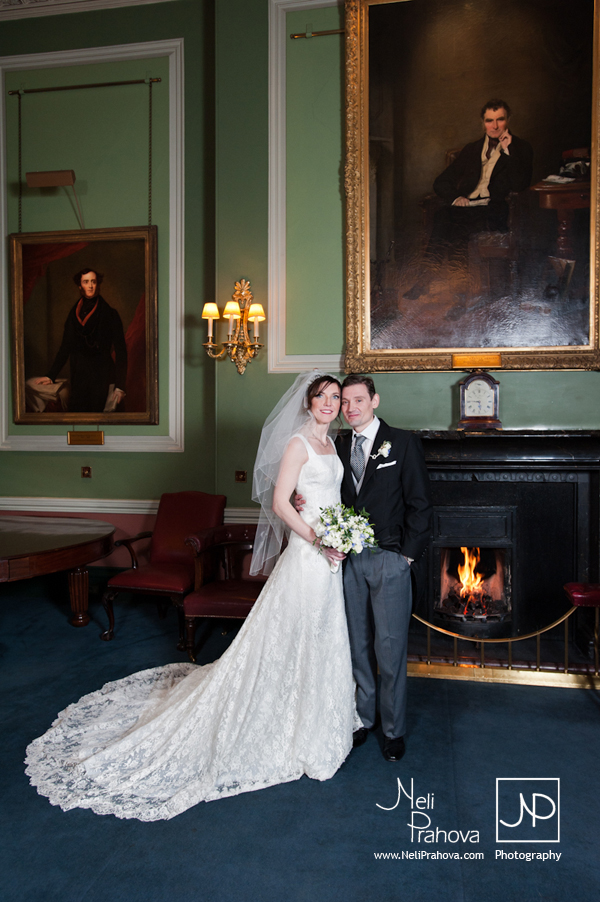
by Michael | Jan 6, 2016 | Blog
As a celebrant, most of the ceremonies I conduct are reasonably conventional (although all are unique – specific to the couples or individuals concerned, because I specialise in tailor-made ceremonies).
Every so often I get asked for something a bit more way out.
Of course, “way out” means one thing to some people and something quite different to others. So perhaps it would be easier if I defined what I had in mind by the term “conventional”.
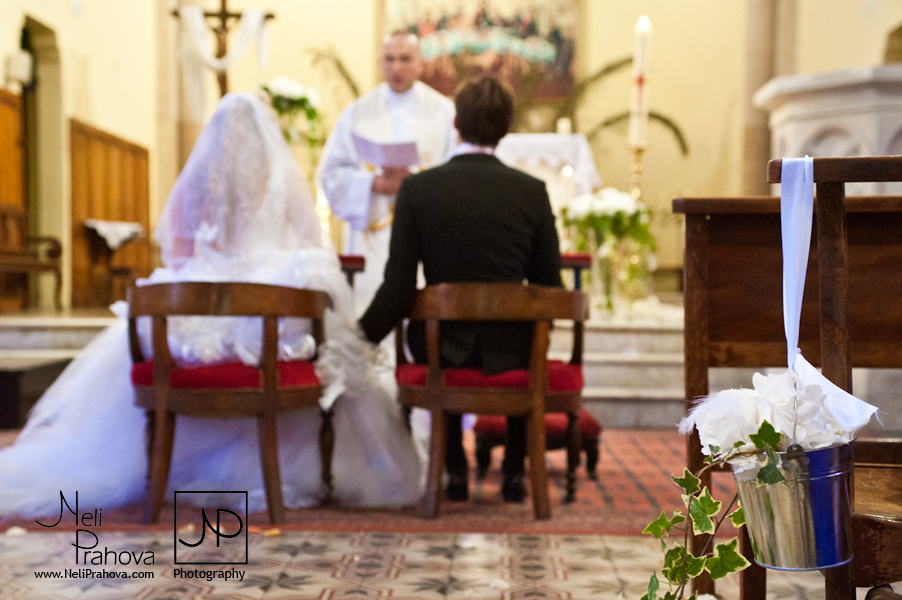
Conventional
A “conventional” wedding will contain most, if not all, of the following:
- an introduction or welcome;
- readings, sometimes delivered by friends or family – these can be prose or poetry, and can be chosen specially by the couple or suggested by the celebrant;
- music – this is unlikely to be “traditional” – although there’s nothing to stop people throwing in a hymn or the like. It may well reflect the couple’s personal preferences or a significant moment in their relationship;
- the vows – these may be written by the couple (with or without celebrant input) or simply suggested by the celebrant. They may be memorised or (more advisable!) read from a card or repeated after the celebrant;
- a ring blessing;
- a celebrant address – this may be something on the importance of marriage combined with the couple’s ‘story’ ;
- maybe, a ritual or two – for example, lighting a unity candle.
Such weddings may feature the bride in white; several, many or no religious elements; and a variety of choices of music and texts.
Venues can be just as varied, of course. Provided the legal part of the wedding has taken place (ie before registrars), imagination or budget would seem to be the main limitations as to where you hold the ceremony.
More ‘way out’
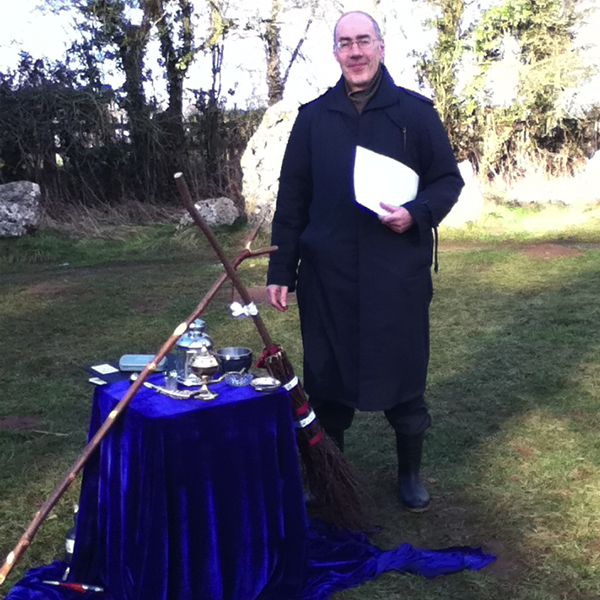
However, I am occasionally asked to do a couple of less middle-of-the-road ceremonies. One was a naturist wedding (I’m afraid, I have no photographs!) and another, a pagan wedding with a difference.
This wasn’t an ‘ordinary’ pagan wedding – if any can be thus termed – as the pagan was marrying a (half!) Jew, so elements from both cultures had to be combined (and explained to guests).
It was a handfasting ceremony, so that also set this apart.
The venue was certainly striking, as we were on top of Old Sarum, near Salisbury. This was of particular significance, because this iron age fort is very exposed, as the photo above shows, and the chances of a dry wedding were very poor. However, whether it was due to the combination of cultures, or mere coincidence, the sun actually shone (briefly) on the ceremony, and we were all able to enjoy the most wonderful experience.
Be bold!
So you have choices. Weigh them up and decide wisely. Bear in mind that a personalised wedding can be so special. Do give it consideration!
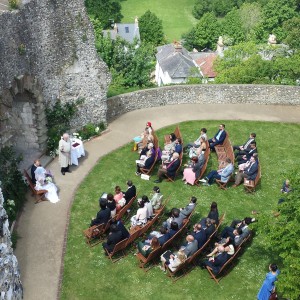
by Michael | Nov 12, 2015 | Blog
I’ve often been asked how I came to be a Civil Celebrant.
I never had any ambition to do such work. (In fact, three years ago I didn’t even know what one was!)
I only heard about it by chance.
If I’m absolutely honest, it all came about because I was interested in 400 prostitutes!
Now don’t get me wrong, please. I may be an active man, but not in the way you may be thinking!
I innocently went to hear a talk by somebody who had considerable experience with prostitutes. He had made a fortune many years back by selling answering machines to a niche market nobody had tapped before: prostitutes!
After the presentation, I had a chat with him, and it turned out that he was now a celebrant.
He told me that he helped people who wanted a ceremony that was bespoke – not formulaic. He worked with them to construct a ceremony that would mean the most to them (and, hopefully, their guests). It could be religious, semi-religious, non-religious – anything. It could be held anywhere – perhaps a licensed religious building, a hotel, a beach or a mountain top.

The ceremonies included weddings (straight or gay), vow renewals, naming blessings and handfastings. (Not to mention funerals.)
Anyway, as I listened to David, I got drawn in. This was something different, this was exciting, this was something I could do well (I have considerable experience as a public presenter) and something that would enable me to make a difference to others.
When could I start?!
Well, I trained late in 2012, and was sufficiently enthused that I then decided to train to become a funeral celebrant. I’m now almost three years down the celebrantt line, and loving it!
Who’d have thought that 400 prostitutes would have made such a difference in my life!
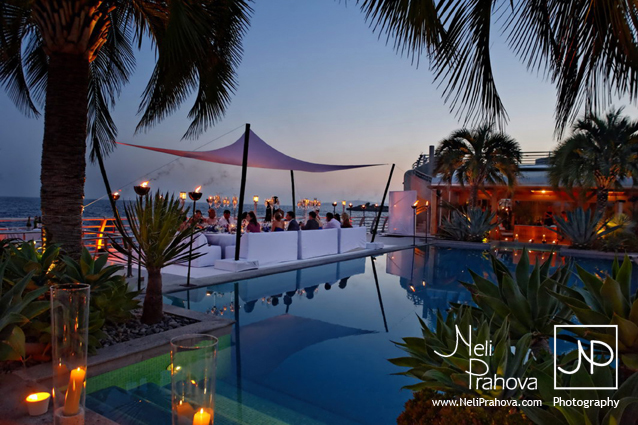
by Michael | Jul 28, 2015 | Blog
Who’d have an outdoor ceremony? Especially in the UK!
In the past few weeks of so-called summer, London has enjoyed (if that’s the right word!) temperatures in the high 30s and also spells of torrential showers with maximum temperatures below 20 degrees. I guess I’m rather relieved that I didn’t have an outdoor ceremony to conduct in that period!
So does that mean that you shouldn’t even consider an al fresco ceremony?
The weather cannot be predicted in the UK – or virtually anywhere else, for that matter. (Let’s ignore the Atacama Desert, etc., for the purposes of this article.) So outside is always going to be a gamble. Is that a reason not to hold such a ceremony, then?
Advantages
- One reason to hold a ceremony outdoors is that you can save money. You still have to get permission and pay the appropriate fee (unless you’re using a back garden), but this may well cost less than booking a hotel or restaurant.
- You may have a particular attachment to a certain place – maybe you first met or got engaged there. One Vow Renewal I led took place beside a canal for the simple reason that the couple were canalboat addicts.
- If it all comes together, there is a wonderful, unique atmosphere about being outside, especially if the setting is special.
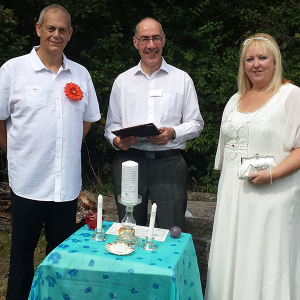
Precautions
Things can go wrong (indoors as well as out), but the main thing to prepare for when outdoors is the weather.
Every venue is different, but if you have a courtyard, say, with a portico, then that offers guests refuge from rain or strong sun. Job done! However, you will still have to consider protection for yourselves and the celebrant in the event of extreme conditions.
The bride will have to consider her footwear, if there’s heavy rain about, and her train, if she has one. Wind can play havoc with her hair, veil and dress.
Parasols or golf umbrellas may be worth investing in, if people are likely to be in exposed places for long. And if you actually get a hot and sunny day, then arrange for water to be available for guests and also for yourselves and your celebrant.
Finally, if the weather is likely to be really cold, then invest in some blankets, at least for older people.
One of the other things you will have to take into account is sound projection. Are you going to need a PA system? How big a ceremony is it likely to be? If you need a sound system, your civil celebrant or possibly whoever is providing music for later may be able to supply one, but you’ll have to investigate.
Some of the most enjoyable ceremonies I have officiated at have been outdoors, but I have not appreciated reading from my script beneath pouring rain! And as for being pursued by an aggressive wasp during the ceremony …!








